Ukraine says bomber deployed British and French cruise missiles ‘perfectly’ in major attack on Russian navy
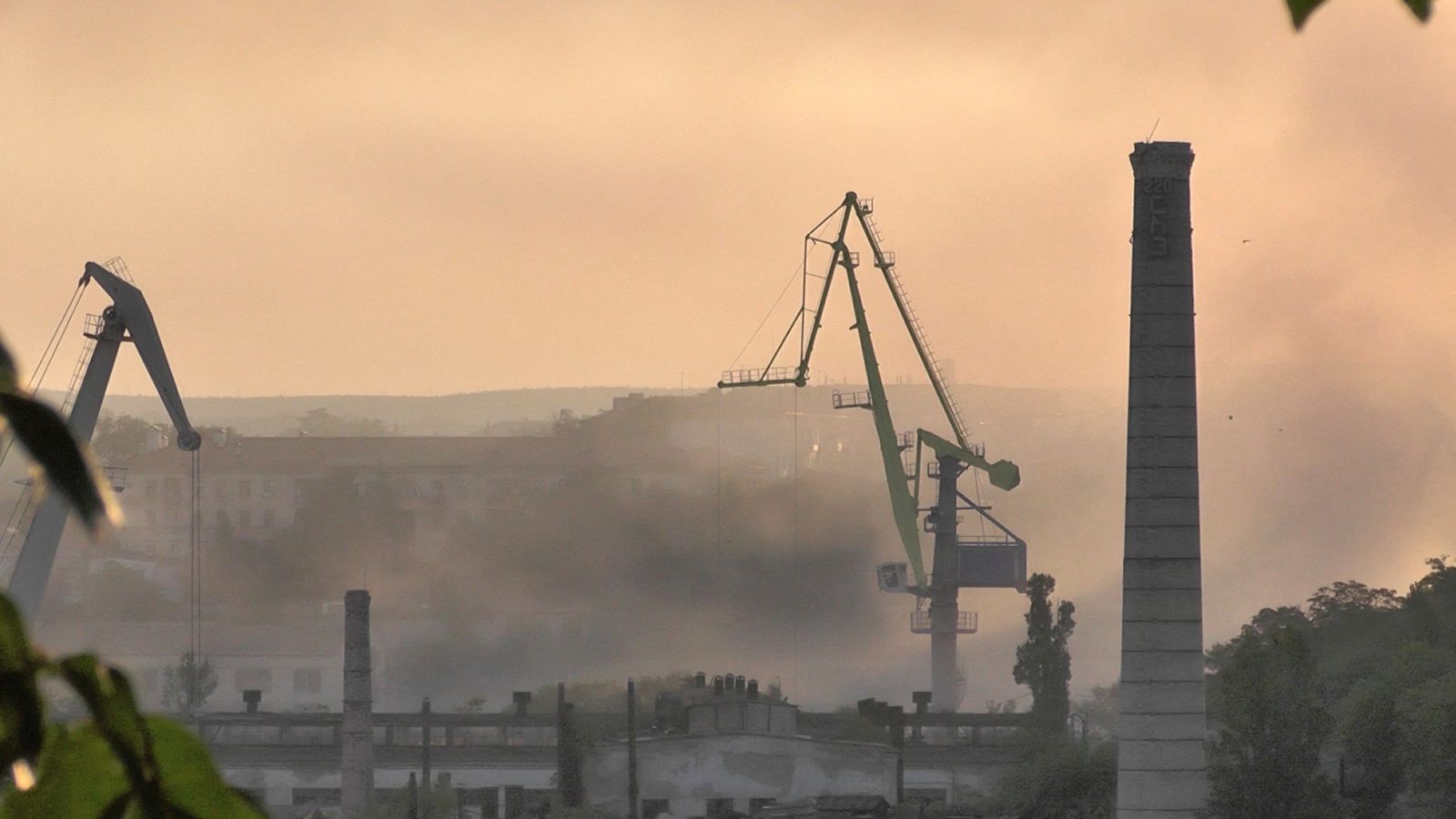
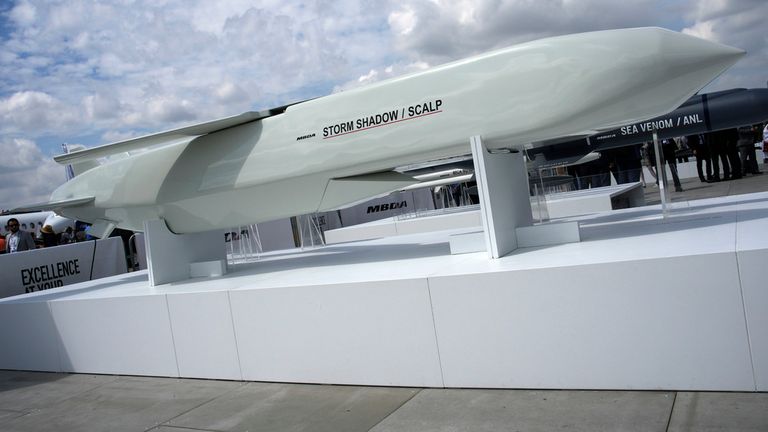
Ukraine has confirmed that British and French cruise missiles – fired from either wing of a Ukrainian bomber – were used in a major attack against Russia’s navy in occupied Crimea and worked “perfectly”.
The strikes, in the early hours of Wednesday morning, devastated one of four Russian cruise-missile-capable submarines in its Black Sea Fleet and a large warship that had been undergoing maintenance in a dry dock in the port city of Sevastopol.
Lieutenant General Mykola Oleshchuk, the head of the Ukrainian air force, explained that British Storm Shadow missiles had been attached under the left wing of a Ukrainian Su-24 jet and French Scalp missiles under the right wing.
“Both missiles work perfectly, without a chance for the occupier!” he wrote.
Ukraine war latest – Putin willing to open peace talks
It is very rare for Ukrainian commanders to release specific details of an operation.
The air chief signalled his Su-24M bomber aircraft also had the capacity to carry German Taurus missiles – a weapon that Berlin has signalled it may give to Kyiv.
“Then the ‘game of cities’ can be continued even more effectively,” the head of the air force said in a Telegram post.
“Once again, I thank our Western partners for the weapons and equipment that help us destroy the aggressor and liberate Ukrainian land!”
Advertisement
Please use Chrome browser for a more accessible video player
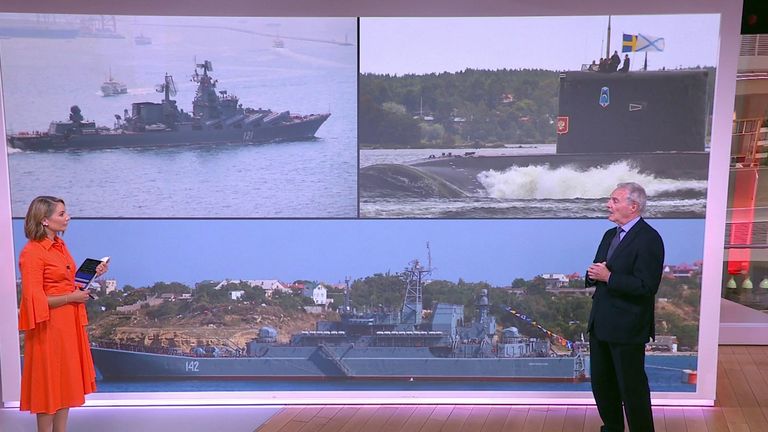
2:26
Russian fleet in Crimea hit ‘heavily’
A Ukrainian and a Western source had also told Sky News on Wednesday that British Storm Shadow missiles were used in the raid.
France is the only other country to have given Ukraine cruise missiles since Russia launched its full-scale invasion.
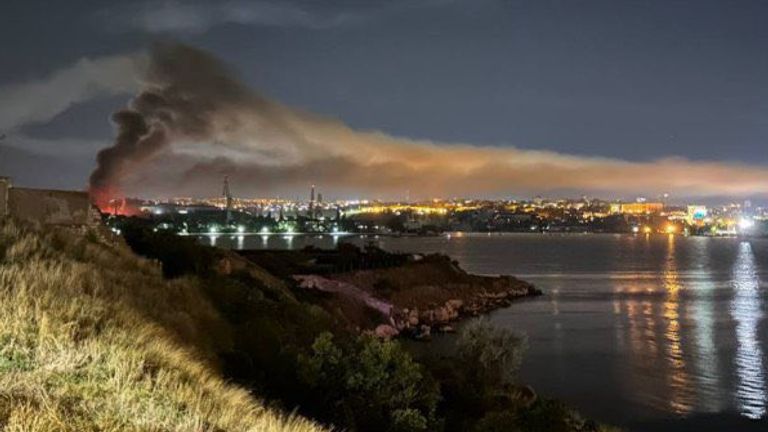
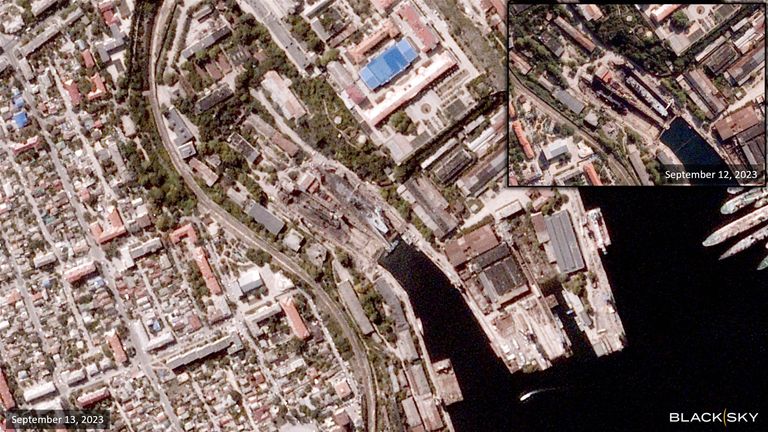
In a further update on the Sevastopol attack, Britain’s Ministry of Defence (MoD) identified the two vessels that were hit as the Rostov-na-Donu Kilo-class submarine and the landing ship Minsk.
It said the warship “has almost certainly been functionally destroyed, while the Rostov has likely suffered catastrophic damage”.
Read more:
Analysis: Putin and Kim partnership could prolong war
‘We will not stop helping Ukraine’, defence minister vows
The UK MoD added: “Any effort to return the submarine to service is likely to take many years and cost hundreds of millions of dollars.
“There is a realistic possibility that the complex task of removing the wreckage from the dry docks will place them out of use for many months.”